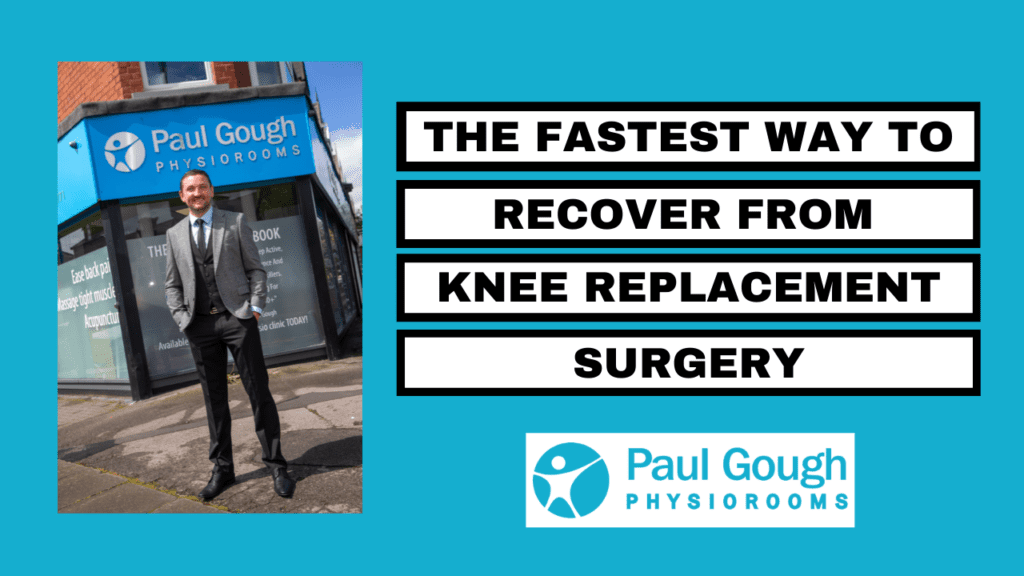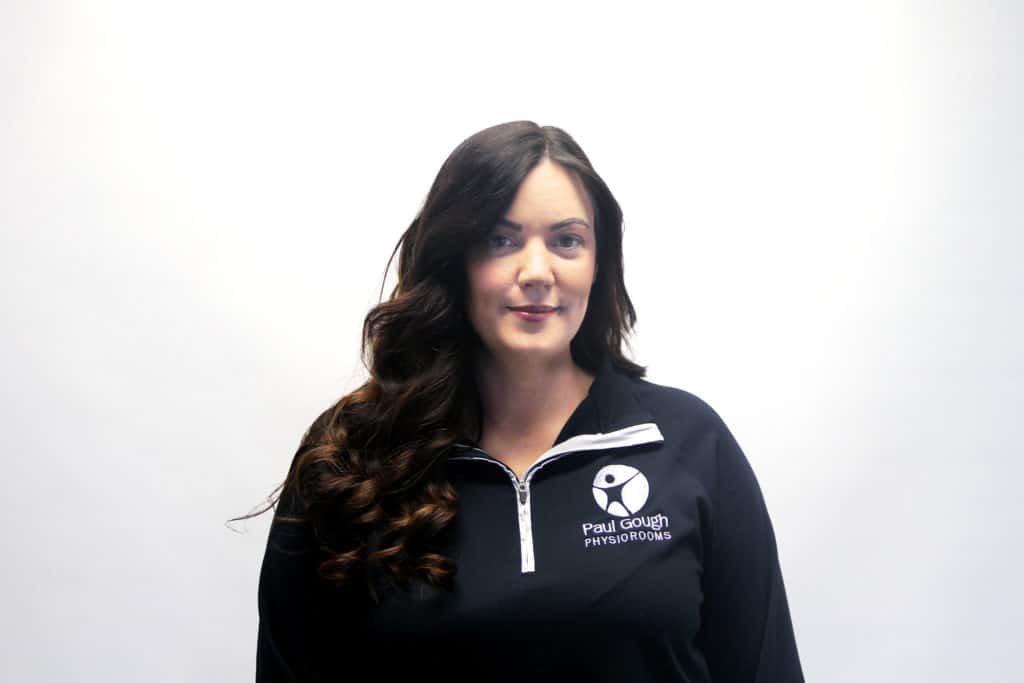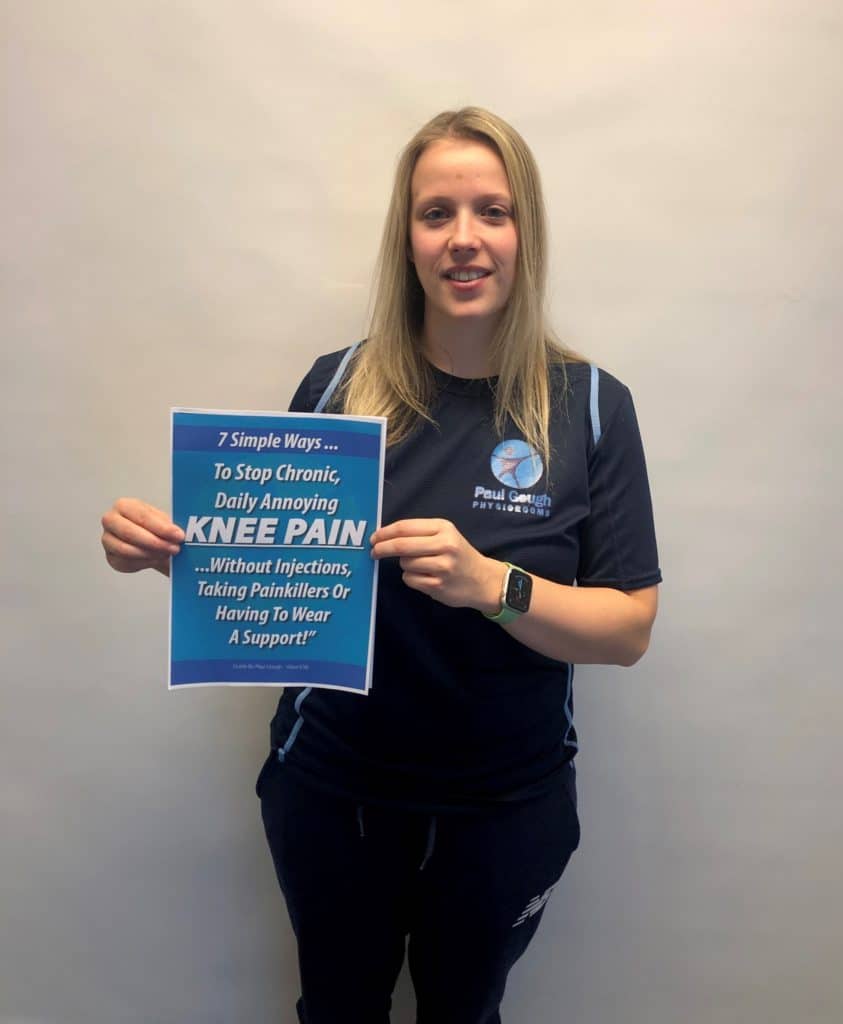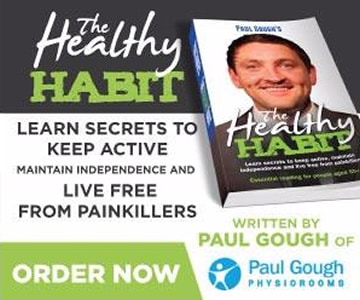
Do you want to know the fastest way to recover from knee replacement surgery, so you can get back to moving as freely as possibly, and being able to do the daily activities you once took for granted?
Or are you on the waiting list for knee replacement surgery, and wondering what the best way to prepare so you can make the fastest recovery possible?
Or are you currently experiencing pain on a regular basis in your knees, and want to avoid the risks of surgery in your future?
If so, this blog contains some expert advice for YOU!
In the UK, there are around 80,000 knee replacement surgeries each year, with a very high percentage of these surgeries performed on people over the age of 60.
In our clinic, we have worked with a lot of patients who have came to us after knee replacement surgery, and they aren’t happy with the level of movement, or the level of pain that they are dealing with.
Whilst knee replacement surgery is sometimes inevitable and the best course of action, it is by no means a guaranteed fix, and there is important prehab and rehab work to be done to ensure people get the results that they want.
The Fastest Way To Recover From Knee Replacement Surgery
If you are recovering from knee replacement surgery, and you want to speed up the process so you can get back to walking the dog, going to pilates classes, or you just want to be able to be able to move freely, and pain-free, we have some top tips to help you do that.
Move Little and Often, Every Hour
Once you have been cleared to move your knee and walk by the doctor, it is important to do so little and often (aim to move around every hour).
This is important as it reduces the risk of complications such as blood clots, improves circulation, helps to keep your joints limber and the movement helps deliver important nutrients to your knee, so you heal and recover quicker than if you sat for long period of the time each day.
Usually, you will be able to start walking whilst you are still in the hospital, so this is something that can be done relatively early in your recovery.
Use Equipment Provided To You
You will typically be given some form of walking aids when you are discharged from hospital following your knee replacement surgery, and these should be used to help you safely move at home.
It may be tempting to think that you should avoid using walking aids, however this is a mistake.
Mel, one of our expert team explains why:
“You might think that forcing yourself to walk unassisted as soon as possible is the fastest way to recover, however doing this too early can actually make things worse as you could be putting too much stress on your knee and the surrounding muscles. So, it is important not to rush your rehab plan.”.
Follow Your Exercise Plan
After knee replacement surgery, you should be given a list of exercises to perform which will help you improve your range of motion (how much you can bend and straighten your knee), and then strengthen the surrounding muscles.
It may be uncomfortable at first, however once you get into the habit of regularly walking and doing your exercise, you’ll feel much better, and recover much quicker.
Whilst it would not be appropriate to prescribe specific exercises in a blog, if you are concerned that your exercise plan isn’t helping you, feel free to reach out to us in the clinic.
To speak to a member of our team and find out how we can help recover faster from your knee replacement surgery, arrange a free taster consultation which is great if you are unsure whether private physio is right for you.
Arrange Your Free Taster Consultation

Kayla, our General Manager, recommends booking a free taster consultation because:
“People who book taster consultations regularly highlight how nice it is to actually be listened to, and be able to get simple, jargon-free, personalised advice – which is something we rarely get when we have been to the doctors with our problems.”
Avoid Kneeling, Or Putting Pressure Against Your Knee
After surgery, your knee will likely be very sore and swollen so kneeling or putting pressure against your knee can cause unnecessary pain for you.
In the initial phase of recovery, the main goal is to reduce swelling so you can increase the range of motion (how much you can straighten and bend your knee).
By kneeling, or putting pressure against your knee, you are likely to make the swelling worse and therefore, this will slow down your recovery.
Get Great Sleep and Rest
Whilst we have spoken about the importance of exercise and movement, we also need to make sure that when you are getting sufficient rest. Therefore, aim to get 8 or more hours sleep each night, if not more, and when you are resting, keep your leg elevated, and apply ice (or a bag of frozen peas) wrapped in a tea towel for 20 minutes every 4 hours to reduce any swelling.
Avoid High Impact Activities Or Activities With A High Risk Of Falling, Or Twisting Your Knee
Later in your recover, and once you have started to notice a significant improvement in your movement capacity, it is important to remain wary of activities with high impact such as running or jumping, and activities with a high risk of falling, or that could result in twisting your knee.
Instead, opt for low impact activities like cycling, swimming, or golf.
Seek Additional Support With Private Physiotherapy
If you have had your knee replacement surgery, and struggling to move freely, still experiencing pain, and still not able to do what you wanted to do, then reach out to our expert team.
We have worked with patients who were disappointed with the results after surgery and came to us looking for more support.
At Paul Gough Physio Rooms, we are able to provide hands on treatment, and complete treatment plans which will not just get you to a minimum quality of life (which is what the NHS physios will do) but will enable you to get back to long walks at Redcar beach with your partner, pilates classes with your friends, and being able to play with the grandchildren when they visit.
To find our more, we offer free taster consultations, where you can speak to a member of our team, ask any questions that you have, and find out what’s stopping you from getting the life you thought you were going to have post-surgery.
Arrange Your Free Taster Consultation
The Best Way To Prepare For Knee Replacement Surgery
As well as helping people post-operation, we have worked with a number of patients who were on the waiting list for surgery and were able to improve the chances of a full recovery by completing a prehab plan which stabilised and strengthened the muscles around the knee.
Check out the video below where Ell and Mel discuss and demonstrate a four exercises that can be used prior to help you prepare for knee replacement surgery.
[rve src=”” ratio=”16by9″]
In the video, Mel demonstrates:
- Mini Squats
- Calf Raises
- Hamstring Stretch
- Hip Abduction
By doing great prehab, you are increasing the speed at which you will recover from your knee replacement surgery.
If you are on the waiting list and want to find out the best way to prepare for knee replacement surgery, then you can arrange a free taster consultation.
In this free taster consultation, we can discuss your knee pain, the problems you are experiencing in your daily activities and identify the best way to prepare.
This will mean that your recovery after the knee replacement surgery will be as short and painless as possible, and help you get back to normal life quickly.
Click Here To Arrange Your Free Taster Consultation
How To Avoid Knee Replacement Surgery Altogether
If you are currently suffering with regular knee pain, swelling in your knees or you struggle to get out of the car, out of bed, or up from your chair, then you are probably worrying about what might happen if things continue to get worse…
You may be hoping that things fix themselves, but you are very aware of the risk of surgery in your future, but you aren’t sure what to do to fix the problem.
If this sounds like you, and you don’t want to feel anxious or scared about the prospect of going into hospital for a knee replacement, then now is the time to get the support you really need.
At Paul Gough Physio Rooms, we have helped thousands of patients, and helped hundreds of people just like you who are experiencing daily knee pain and unable to move freely.
We have a number of options available to you:
You can download our FREE knee pain report written by our founder, Paul Gough, entitled:
How To Stop Chronic, Daily Annoying Knee Pain WITHOUT Injections, WITHOUT Taking Painkillers and WITHOUT Having To Wear A Support or Brace…

Download Our Free Knee Pain Report
Or if you want to get some more personalised advice, we offer you the opportunity to speak to a member of our physio team on a 1-1 basis in one of our four clinics…
In this FREE Taster Consultation, we will discuss your knee pain, and identify the underlying cause, as well as outlining what you natural, drug-free solutions are available to you.
Arrange Your Free Taster Consultation
Or if you want to read more of our informative blogs, click the link below:
Read More Of Our Physiotherapy Blog Articles
Read Our Blog – 3 “Quick Fixes” That You Think Help Knee Pain – But Don’t
Read Our Blog – Why Do I Get Knee Pain When Walking
Want videos on demand? Check Out Our YouTube Channel (Remember to hit subscribe so you don’t miss out on our new videos!)


